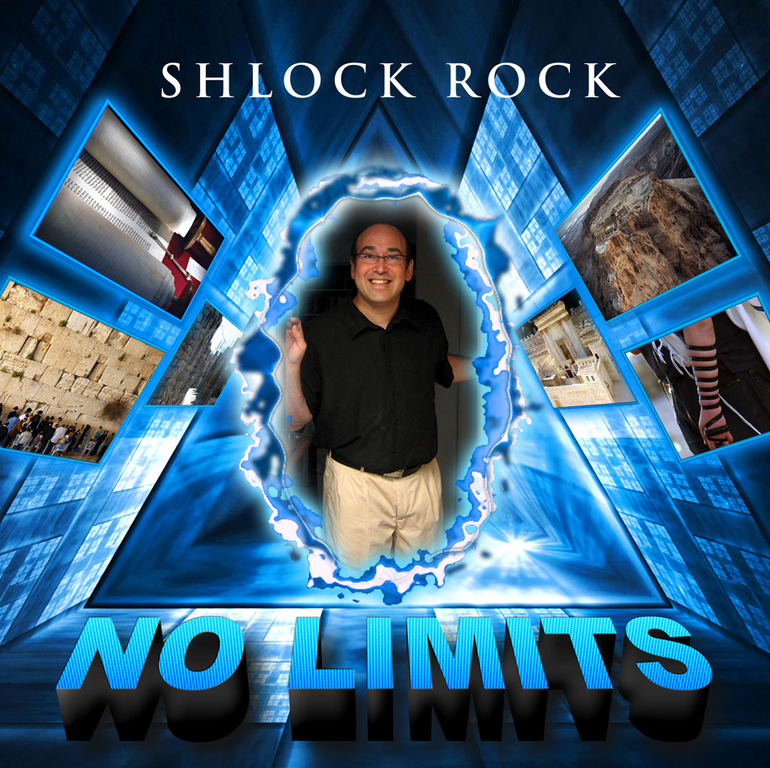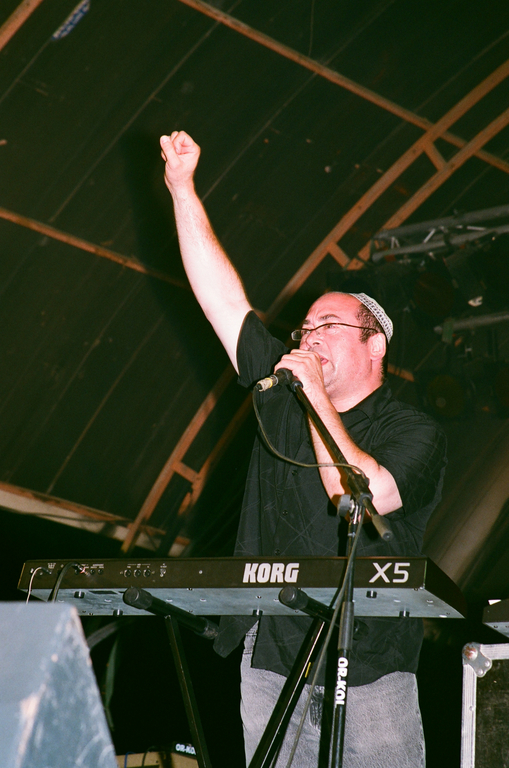'Pay what you want' doesn't equal zero
Shlock Rock artist conducts honor system experiment in Jewish music
By Tova Ross
Issue of January 15, 2010/ 29 Tevet 5770
Lenny Solomon didn’t plan on releasing a new CD this year.
“With the economy the way it is, I knew it was not the best time to come out with a new album,” explained Solomon, who founded the Jewish music group Shlock Rock 24 years ago.
But inspiration waits for no economic upturn, and last year, Solomon, a tireless producer who thrives on little sleep, wrote 12 songs in four days. Eager to share his work with Shlock Rock fans, he decided to release the album, called “No Limits,” anyway — online, and at no set charge. Fans could pay whatever they wanted to download, and if they didn’t want to pay, they didn’t have to.
Innovation or lunacy? There are likely to be people in both camps, but Solomon is a firm believer that the pay-what-you-want plan will ultimately be a success, if not the most lucrative move of his career.
Solomon first learned of the concept in 2007, when the British band Radiohead released its seventh album, “In Rainbows,” on the band’s website. Fans could choose to pay what they wanted for the album. Exactly how much profit the band made is not known, but “In Rainbows” was largely considered a success. The New York Times called it “the most audacious experiment in years.”
“In other words, they went straight to the fans,” Solomon said.
In the nearly quarter of a century that the humor-driven Shlock Rock has been around, the band has earned itself a lot of fans. The group parodies popular secular music by substituting Jewish-themed lyrics for the often inappropriate, or otherwise negative messages in the original. Their most popular songs include “Sweet Aroma of Challah,” sung to the tune of Lynyrd Skynyrd’s “Sweet Home Alabama,” and “My Menorah,” sung to the tune of Ritchie Valen’s “La Bamba.” “No Limits” is Shlock Rock’s thirty-first album.
Intrigued by the idea of sending music to the fans directly, Solomon instituted his own version of the concept this past year.
“I had so many songs I was eager to share with the fans that I decided that putting out the songs under Radiohead’s model would be a way to do it,” said Solomon. “This is Shlock Rock’s way of giving back to the community, which has supported us for so long.”
Halfway through the campaign, Solomon has no hard and fast numbers about the results, but he does say that, so far, people who have been downloading the album have paid an average of $7.
“So many people said nobody would pay anything, or, if they did, pay $1 at most. However, we’ve had many people contribute up to $15 because they support our music and what we’re trying to do. Those balance out the $1 downloads,” he said.
“A few of my peers in the industry have told me they think this is a great idea,” continued Solomon. “Everyone is trying to deal with the decreased rate of purchasing CD’s these days and finding ways to have their music survive.”
The experiment will end on March 28, but Solomon said that no matter how much money is ultimately earned, he considers it a success since people who would not usually buy a Shlock Rock album could get it easily via digital download.
“It’s also created a buzz in the Jewish music world,” said Solomon. “A lot of people are talking about Shlock Rock and this new album.”
“I’m not sure Shlock Rock will ever do this again, but generally, I do think the idea is sustainable,” commented Solomon. “If the music is good and people begin listening and sharing it with their friends, eventually, they will want to turn out and see the band in concert. Any vehicle that gets people to hear the songs is a good idea.”
Fans of the band won’t be disappointed with the group’s projected output for the next 12 months. Next on the horizon for Shlock Rock is a long-awaited project called “Shabbat in Liverpool,” which will be released in the summer of 2010 in honor of the band’s 25th anniversary. The album is comprised of more than 25 famous Beatles tunes set to Shabbat prayers and traditional songs.
“It took five years to obtain licensing for that particular project,” said Solomon, “but it promises to be the most spectacular Shlock Rock album ever released.”
The band will also release twenty-five new melodic parodies next year.
“Twenty-five songs for twenty-five years,” said Solomon.
Not content with just releasing audio projects, Shlock Rock also plans on filming a “Shlock Rock for Kids” DVD series as well as a host of music videos.
“Historically, bands made a living from concerts — CD sales was just icing on the cake. A hard-working band can make a living touring and performing. It’s not easy, but those who truly love their work will do it,” Solomon said.
Shlock Rock has toured over 250 cities across the world and performed over 2000 shows, and shows no signs of stopping anytime soon.
Questions or comments? Contact Tova Ross at newsroom@thejewishstar.com

 43.0°,
Partly Cloudy
43.0°,
Partly Cloudy 







